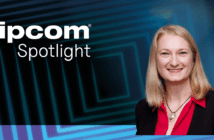What are international documentary buyers looking for in 2015? It’s the question at the forefront of most MIPDoc attendees’ minds this weekend, and this morning they heard from a panel of buyers at the conference, explaining their acquisition strategies for the year ahead.
The panel comprised (l-r): Zhi Hengyi, manager, Da Neng Culture Media; Nesta Owens, director of programmes at Discovery in the UK; Angela Neillis, director of non-scripted, UK, EMEA and Asia Pacific, FremantleMedia International; and Corentin Glutron, head of acquisitions, RMC Découverte. It was moderated by Edwina Thring, managing director of Wild Thring Media.
Glutron talked about the young, male-skewed audience of French channel RMC Découverte. « We’re buying around 1,200 hours a year, » he said of the channel, which launched in 2012. « Now we’re starting to produce a lot of content… the amount of hours produced are around 200 hours, and we are working with around 50 different producers, from France mostly. »
Its five main topics are history, science, real-life, adventure and travel. « We also have the Top Gear slot, which since the beginning of the channel has been Wednesday evening, all the time. So this is what we are looking for: very easy, I guess! » The French version of Top Gear has been a big success for the channel, attracting 1m viewers for its first episode, and carrying on from there.
[youtube]https://www.youtube.com/watch?v=5g-6AiH7EQA[/youtube]
Glutron noted that because of French law, foreign companies might be advised to work with a French producer if they are keen to sell programming to broadcasters in the country. « Wherever you are from in the world, if you are able to work with a French company, you can work with us too, » he said.
He added that « everything is doable for us » in terms of series versus one-off specials tied to specific anniversaries and events in terms of producers pitching in their programmes, promising that his team « screens everything » submitted in terms of acquisitions, and aims to respond within two weeks.
Neillis talked about FremantleMedia’s approach on the distribution side of things, including investing and co-producing to help fund shows and get them on the air, then bring back a commercial return from distribution. « We’ve got some very excellent producer relationships and great programmes of all varieties, » she said.
What genres is she looking for this year? « A steer back from reality programme making, which isn’t so easy for us to sell, and towards science shows. Nature always sells very well for us. We’re looking for shows which have a global reach and an international vibe about them. Entertaining is obviously top of the list… Shows are generally commissioned in some sense of the word: we complete finance rather than full-fund, but that financing can be from 10% up to 30% or 50% depending on the show… I would say 10-25% is typical. »
She talked trends. « Science seems to pop up a lot recently… it’s really edifying to see that science can be done in a really interesting way. Audiences want to watch: it’s not dry, there’s no lecturing going on. » She cited An Hour to Save Your Life as an example of this, produced within FremantleMedia.
How much programming is FremantleMedia buying? « We don’t have a set number of hours. I think I’ve got 25 shows at this market in the non-scripted area, » she said. A couple of those are one-offs but most are series.
Discovery’s Owens talked next about the strategy across her network of channels. She is buying for 16 channel brands. « That’s an awful lot of hours! » she said. And while Discovery gets a lot of content from the US, but the non-US team’s role is to plug gaps and localise channels by « bringing in locally-relevant shows ».
Discovery remains the flagship channel, available in 109 countries. « We are branching out into commissioning far more: we’re not just going to curate channels now, we are moving more into commissioning and co-producing, not just in Poland but also in Germany and in Russia, » she said. « We’re trying to see what the synergies are in those three countries working together… In Poland alone they’re commissioning 120 hours of male-focused factual content, just for Poland… And next year we have in the budget 200 hours of male factual content for Poland. »
She talked about the TLC channel, where Discovery is also commissioning more in Russia and Poland, and then distributing those shows between the two countries. « We’ve been the first to have Dating Naked on TLC in Poland. With that much nudity, we had to show the show after 11! » she said.
Owens talked about Discovery’s IDX crime channel, which takes lots of shows from the US, but – due to regulation in the UK – has a need for daytime-safe true-crime shows, which it is looking to commission locally. « It’s slightly oxymoronic: ‘safe murder’! We’ve been focusing on missing people… stuff that tends to be slightly less bloody than murders… »
She added that Discovery is increasingly interested in scripted ideas, seeing what’s happening on other networks with shows like Vikings on The History Channel and Killing Jesus on National Geographic. « We’re interested in looking at what a semi-scripted / factual show could look like for Discovery, » she said, inviting pitches from attendees at MIPDoc 2015 on that score.
Hengyi talked about Da Neng’s approach: it’s a distributor and commissioner rather than a broadcaster: it finds content from international markets then syndicates it to broadcasters across China. « In China, history always works, and current affairs, wildlife and science is a new trend that works for us, » he said. But history is slightly different in China than in other TV markets. « We are Sino-centric, we need programmes that relate to China. »
For example, Chinese viewers were not interested in the glut of first world war programmes commissioned for the 100th anniversary of that conflict – because China did not take part. He says other « euro-centric » shows are equally unappealing. « If you mention the Battle of Hastings, nobody knows about it! But if you say the Great Wall or the journey of China’s navy, that works for us. At MIP, you’ve got great history stuff, and you come to us and the mass audience has nothing it’s really familiar with. »
He was enthusiastic about science shows. « We licensed 20 hours just from French TV stations and distributors. It works very well… We love the stuff, » he said. And current affairs, given the political system in China? « It’s always tricky. The nature of the broadcasting system is not really into the current affairs. But there are changes. Last year, we licensed Afghanistan: The War on Terror, which really shocked me… Osama bin Laden and the war in Iraq, it worked really well. So this evaluation system it works, it changes every single time. »
He continued with a warning that while budgets may seem low, they are growing. « The Chinese market is an emerging market, which means the licence fee we pay is not much to the international standard yet. Three years ago a one-hour programme was only $60. » But now it’s a lot more than that, and growing every year.
Finally, the panel were asked about whether digital is playing a growing role in their buying strategies – for example, are producers coming to them with digital ideas around their shows, or are they thinking about this as they commission?
« We’re just getting into it now: we’re a bit behind the curve, » admitted Owens. « For acquisitions, it’s often quite hard to get the digital assets, although we’re trying to incorporate a 360 approach when we commission. But it’s still slightly an afterthought. We’re trying to bring it higher up the thought process. »
Check out MIPTV, MIP Digital Fronts, MIPDoc & MIPFormats 2015 full live coverage




